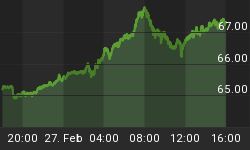One of the founding myths of the modern global financial system was that governments, especially of the developed democracies, could borrow endlessly without consequence. But, with sovereign debt crises erupting across the globe, it appears that the umbrella of perceived safety has gotten smaller, exposing some benighted countries, like Greece and Ireland, to severely rough weather.
As a key condition for financial rescues of these ailing sovereigns, the International Monetary Fund (IMF) and the European Central Bank (ECB) both demanded severe cuts in government spending. Faced with a bondholder revolt that sent yields upward, both acquiesced and have embarked on austerity campaigns to repair their financial positions.
The big question is: has the umbrella stopped shrinking, or will other countries soon face similar decisions?
For now, major governments such as the US and EU have been able to continue to borrow and spend licentiously to fend off the threat of deflation and keep their economies stimulated (the US is by far the greater offender). But three surprising and powerful changes threaten the viability of a long-promised "exit strategy."
First, international investors are beginning to become net sellers of sovereign debt. Even the mighty United States is finding that, despite the Fed's rounds of massive quantitative easing, in which the Fed has bought outright hundreds of billions of dollars of US Treasuries, yields are still rising. In other words, the private and foreign selling pressure is stronger than the Fed's buying pressure.
Second, the credit agencies, stung by their failure to warn investors about the banking crisis, are now emboldened enough to threaten the triple-A ratings of member states within the EU, and even of the United States itself - now the largest debtor in the world. Although it remains to be seen how great an impact the rating agencies will have on the debt markets, the fact that such moves are being contemplated at least drives the debate in an unprecedented direction.
Third, there is considerable and growing political pressure on governments to cut spending. There is a growing awareness among Western voters that government largesse can't be maintained forever, and that it will likely cost the next generation if not the present. Many pet spending programs, including defense, healthcare, welfare and even public pensions, are getting ready for haircuts - if not scalpings. Massive government spending cuts, possibly accompanied by tax increases, will be sure to take a huge bite out of near-term GDP growth, and will perhaps put the world back into the second act of a recession. This will lead us to the next great crossroads in the global financial crisis. Put simply, will the governments of Europe and America allow a natural contraction?
If the central banks of the EU and the US choose to unleash even more massive reflationary programs, then a period of crippling inflation could be the outcome. This will form the basis of monetary chaos and prolonged economic stagnation, the most damaging of all economic conditions. In these circumstances, the prices of needed raw materials and commodities, including precious metals and energy, would explode in dollar terms. [For those looking to gain investment exposure to the North American energy market, be sure to read Euro Pacific's new special report first. Click Here to download.]
Meanwhile, Chinese inflation is beginning to drive the international agenda. In order to keep a lid on this growing problem, China will soon have no choice but to revalue its currency, the yuan, higher. This will curb inflation and make most commodities cheaper in domestic terms. It will also satisfy the increasingly angry political calls of other nations for China to revalue.
A yuan revaluation requires a devaluation of other key currencies, most dramatically the US dollar, but also the pound sterling and euro. This will raise prices for food, energy, and other necessities even in the absence of action by our central banks. Such an outcome will place further economic pressures on the developed West.
In conclusion, 2011 likely will open with a deepening recession, increasing austerity, and falling asset prices. If this is met by a new round of inflation creation and yuan revaluation, then investors should weigh whether to redeploy assets in anticipation of potential rising commodity prices. I expect these developments not to happen gradually, but to come in great waves. Smart investors will tie their fate to an investment vessel with a solid hull, because in these seas, even a hint of rot could tear a ship asunder.
Before you sit down for your holiday dinner, make sure your portfolio is prepared for big changes in the Canadian oil & gas industry. Click here for free access to Euro Pacific's new special report: What's Ahead for Canadian Energy Trusts?
Also, there's no smarter gift than Peter Schiff's acclaimed economic fable, How an Economy Grows and Why It Crashes. Click here to learn more and order.















